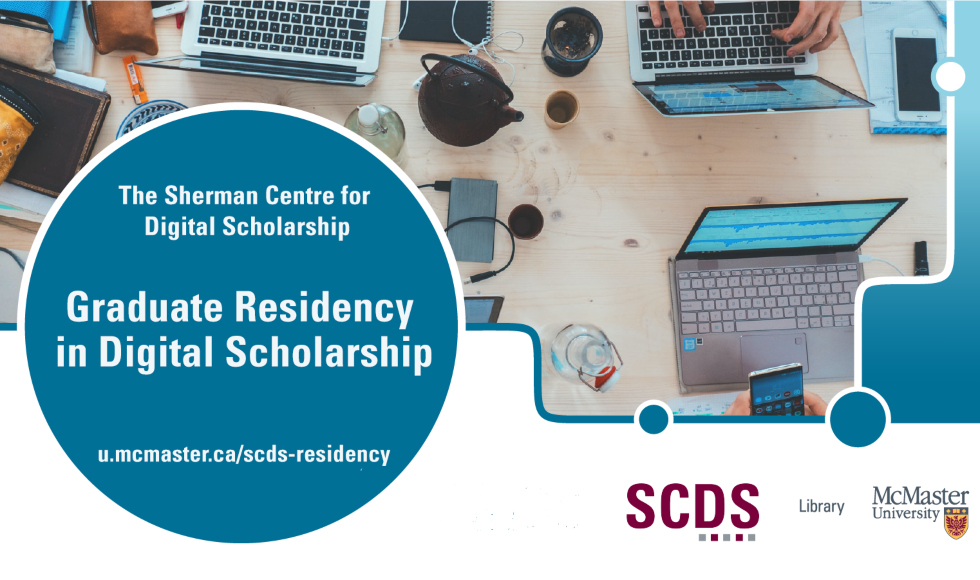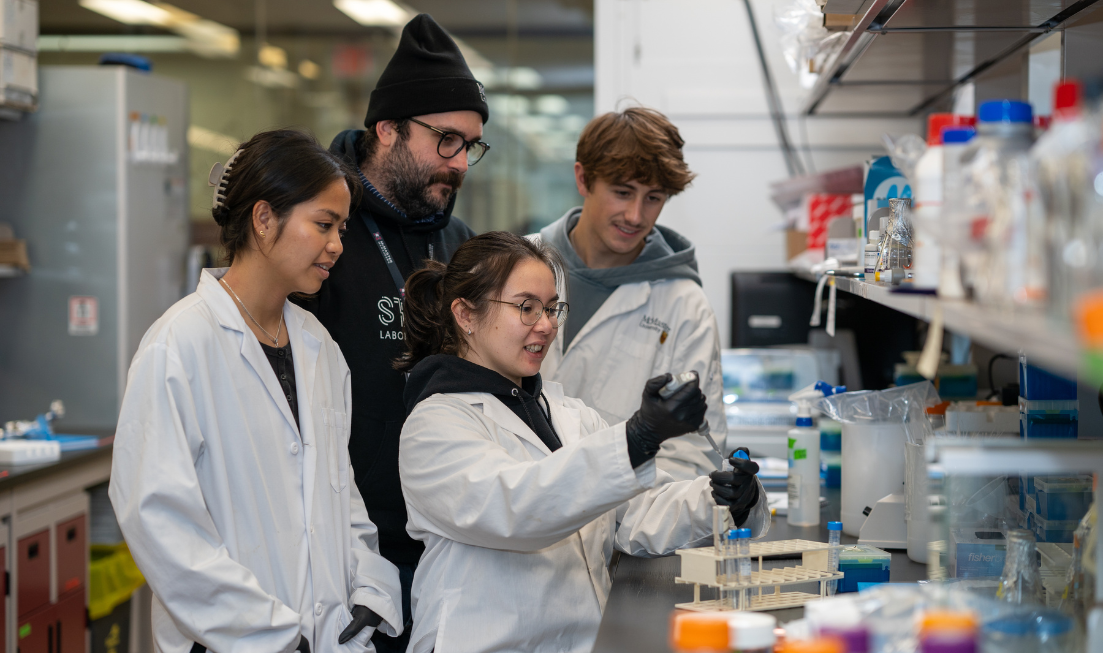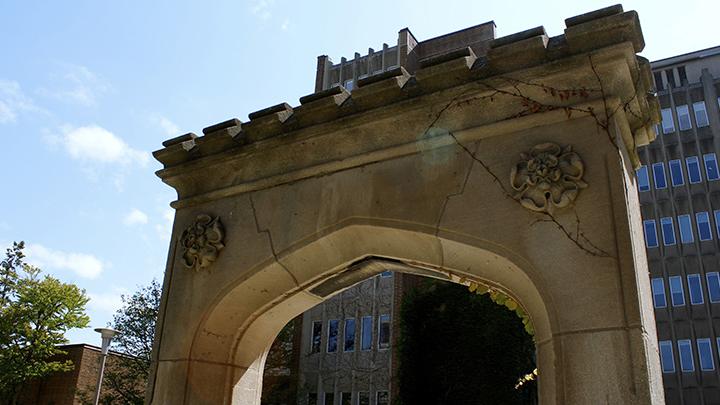Applications are open for graduate residency at the Sherman Centre

The Sherman Centre for Digital Scholarship (SCDS) is accepting applications for its 2024–2025 graduate residency program until August 30.
The program, which runs from October 1, 2024, until May 31, 2025, supports graduate students from all faculties as they explore digital scholarship through a self-directed research project, which may or may not be related to their primary research work. Along with access to technology, the program also includes expert consultation, research mentorship, skill sharing, comprehensive training opportunities, interdisciplinary collaboration and a supportive digital scholarship community.
Students from programs across McMaster have participated in the residency, including Global Health, Earth, Environment and Society, Communication Studies and Media Arts, English and Cultural Studies, Medical Science, Engineering, Social Work and Neuroscience.
Supporting emerging digital scholarship
For Andrea Vela Alarcón, a doctoral candidate in Communication Studies and Media Arts, a chance to develop advanced skills in digital technology inspired her to apply for the residency. She is developing a digital storytelling intervention of her relationship with the Amazonian city of Iquitos, Peru and its long history of resource extraction.
“I am self-taught in all the analog and digital creative practices I use in my work,” says Alarcón. “What drew me to the SCDS Graduate Residency Program was the potential for mentorship and guidance within more advanced digital tools such as Augmented Reality?(AR).”
Elyse Letts, a PhD student in Medical Sciences with the Child Health and Exercise Medicine Program, was similarly drawn to the Sherman Centre to support her technical skill development through the centre’s workshop series and learning modules. The aim of Letts’s project is to develop a publicly available tool to assess toddler physical activity using machine learning, without needing any technical coding experience.
“When I saw the Graduate Residency Program, I was immediately interested in taking a deeper dive into digital scholarship,” she explains. “During my time as a resident, I hope to continue expanding my digital creation skills to create a product that can be used widely in my field.”
The Centre’s focus in digital scholarship also drew PhD candidate in Communication Studies and Media Arts Katie Waring to the residency program.
“I see the residency as an opportunity to blend my theoretical training in Communication, New Media and Cultural Studies with my arts background as I work on a media arts project which will be an essential part of my research-creation dissertation,” says Waring.
As part of her residency program, Waring will develop a navigable map as part of the digital community archive of New York State’s Craig Developmental Center (also known as the Craig Colony for Epileptics) she is curating for her dissertation.
As the first such colony for people with disabilities in North America, the Craig Colony helped galvanize a eugenic movement and promoted the segregation and sterilization of people with disabilities deemed ‘unfit’ for society. The digital archive aims to draw more public and academic attention to Craig’s historical importance through survivor-led testimonials, as well as serve as a public memorial to victims of institutional violence.
“I’m excited to deepen my knowledge of methodologies common in digital humanities scholarship, particularly as they relate to digital storytelling.”
An interdisciplinary digital scholarship research network
Networking and community-building emerge as fundamental elements of the fellowship experience for many residents.
“I appreciate the opportunity to discuss my research and expand my social network,” says Bruno dos Santos, a PhD student in the School of Earth, Environment & Society whose research focuses on understanding how transportation acts as a barrier for individuals in finding or maintaining employment.
Bradley McNeil, a PhD candidate in Communication Studies and Media Arts, was also drawn to the collaborative nature of the program. He is currently creating a database of civil society organizations (CSOs) operating in the Global South that are engaged in efforts to reform the content moderation policies of global social media platforms.
“The SCDS Graduate Residency Program is an excellent way to get support with my own research projects. It is invigorating to learn about what others in the program are working on and it is super helpful to discuss research with a community of researchers from different disciplinary backgrounds,” he says.
“I am looking forward to developing interdisciplinary skills that will allow me to present research in new ways!”
Research, Skills-buildingRelated News
News Listing

Turn your ideas into reality with the Digital Society Lab Hack
Competitions and contests, Skills-building
December 9, 2024

McMaster earns top spot for graduate student research intensity in annual rankings
Community, Research
December 9, 2024

